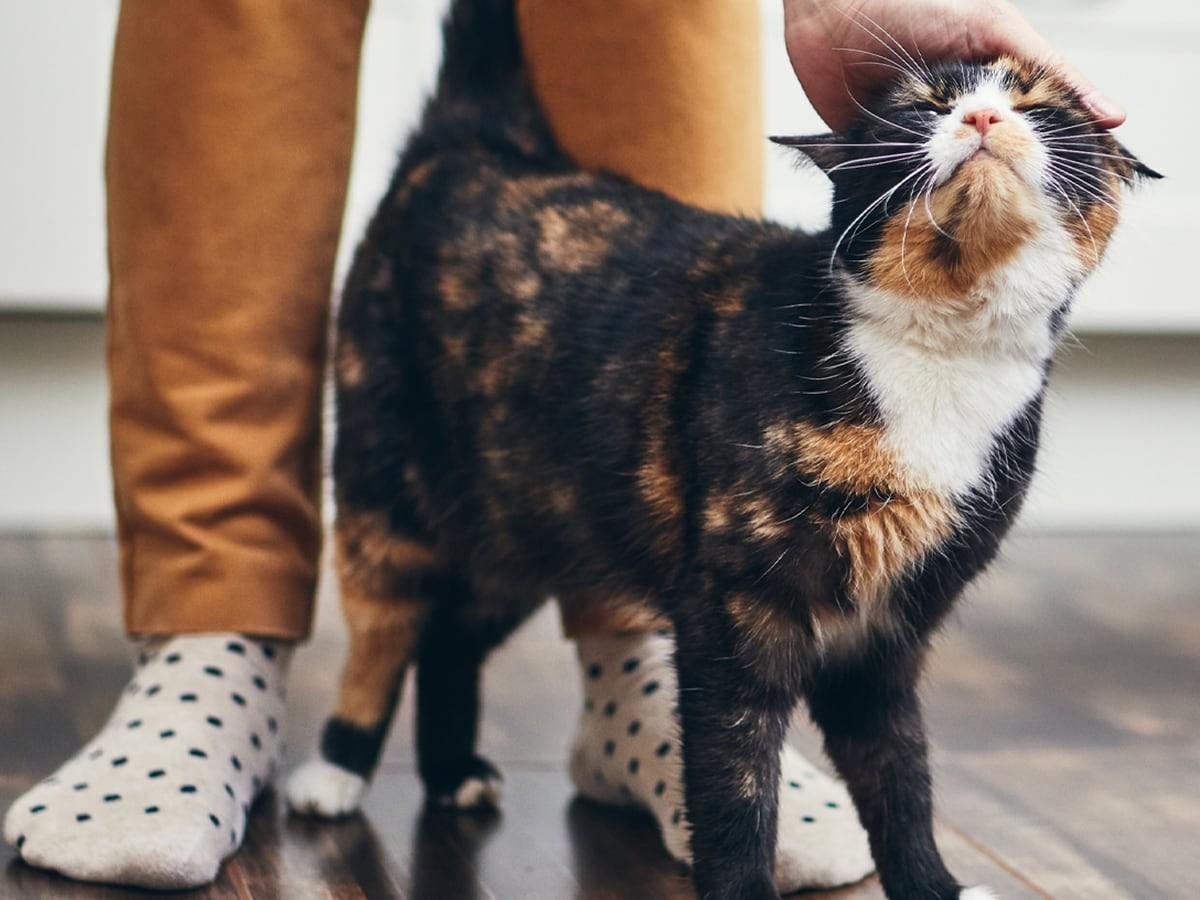If you have a cat in your home, you know there are few things better than having them curled up next to you, purring away. Although many of us believe we know the reason our cat is purring, the truth is there are more reasons behind it than you may have realized! Let’s look at deciphering the reason behind our furry friend’s vocal vibrations!
Reasons Behind Your Cat’s Purr
Most of us likely have always thought the reason behind your cat’s purring is pretty straightforward. However, there are actually a few different reasons your cat may be purring!
Purring from Happiness
The most commonly known reason behind purring is that a cat is happy. If you notice your cat is purring while you’re petting them or while they’re eating and drinking, it’s likely they are trying to tell you they are enjoying what’s happening, and they want it to continue.
Purring as Communication
Believe it or not, cats are able to start purring shortly after they are born. Purring is used for communication and bonding between the mother cat and her kitten. The vibration from the mother cat allows her babies to be able to locate her and nurse because cats are born both blind and deaf.
Purring Due to Stress
Purring is normally a sign of happiness, but it can actually be a sign that your cat is stressed as well. If your cat is in an uncomfortable situation, they may begin purring as a way to try to self-soothe. If your cat is stressed, their purr may be higher pitched than it is while they are happy. Their stressed purr may also be accompanied by panting.
Purring for Healing
The vibrations that occur while a cat is purring can actually have healing properties. Some cats will purr while they are in pain, such as during labor and delivery of kittens or when they aren’t feeling well. Purring can help your cat regulate their breathing and can even promote muscle repair and growth.
Purring as a Greeting
When your cat sees a human or another cat they are familiar with, they may choose to greet their friend with a purr. The reason behind this choice isn’t fully understood, but many experts believe the purring is meant to be a sign that your cat is friendly and willing to be approached.
Purring to Get Something
If your cat wants food, attention, or something else, they may choose to purr to let you know. If your cat needs something, they may try to tell you through a higher-pitched or more urgent purr because we are more likely to react to this pitch and frequency over a “typical” purr.
How Do Cats Purr?
Believe it or not, no one is fully sure how a cat purrs. There was a time when it was believed that purring came from blood pumping through the cat’s inferior vena cava, which is a large artery near the heart. However, recent science has determined that your cat’s purr actually comes from the voice box.
Purring happens while your cat is inhaling, and the laryngeal muscles begin opening and closing quickly. This process creates a vibration with a frequency between 25 and 150 per second, and this vibration created your kitty’s purr. The neatest part? Most science believes that your cat doesn’t actually control their purr, meaning it happens much like the reflex of breathing or blinking.
Purring Effects on Humans
Your cat’s purr does a lot for their little bodies but did you know that their purr can have many benefits for you as well? As if you needed more reason to cuddle up with your purring cat, here are some of the potential benefits of being exposed to a cat’s purr!
Endorphins
Purring releases endorphins for your cat, but it can also help release them in your brain as well. When your body releases endorphins, it can help you be less stressed and even help lower your blood pressure if needed.
Healing
We mentioned that some cats will purr in an attempt to heal their body, but the frequency of a cat’s purr can help heal your body as well. This frequency has shown that it can help speed up the healing of broken bones, joints, tendons, and other wounds.
Other Possibilities
Although everyone’s experience is different, many people have reported their cat’s purr helping them recover quicker from migraines, respiratory illness and depression symptoms. Regardless, it’s safe to say it’s a relaxing and comforting experience to be hanging out with your purring cat.
Takeaway
Your cat’s purr can be comforting for both you and them. The next time you’re around a purring kitty, see if you can notice a difference in the pitch or urgency behind the purr to decipher what your cat is communicating. Purring is a reflex for your cat and doesn’t seem to be something they are able to control. In fact, your cat’s purr continues to be a bit of a scientific mystery, which makes it an even more special sound to experience!

With 10 years of experience as a pet parent, I aim to empower pet owners with insights into pet insurance and maintaining their pet's well-being. I aspire to be a trusted source, combining knowledge with a commitment to the welfare of our beloved pets.












